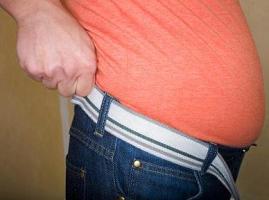 According to a new study related to belly fat and heart failure, the body mass index (BMI) and the waist size of people influence their risk of being hospitalized with the heart failure condition or even death from the same.
According to a new study related to belly fat and heart failure, the body mass index (BMI) and the waist size of people influence their risk of being hospitalized with the heart failure condition or even death from the same.
The findings of the study indicated that each additional BMI point increased the risk of heart failure hospitalization or death by 3 percent in women and 7 percent in men; while a waist-size increase of 10 centimeters furthered the risk by 19 percent in women and 30 percent in men.